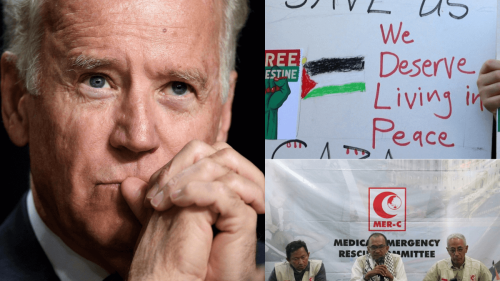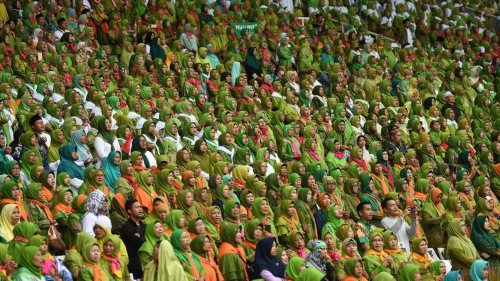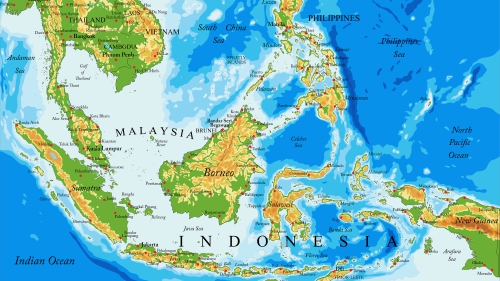East Timor - Vote Expected in Favor of Independence
As UN-monitored polling stations close in East Timor, the East Timorese are not the only ones to be affected by the outcome of today's referendum vote over the status of the former Portugese colony. Some 400,000 of the mostly Catholic East Timorese are deciding whether to remain with Indonesia under a broad autonomy package or to become an independent country. With some voting still to take place on Tuesday, East Timor's future remains in limbo. But despite the rest of the archipelago's traditional distance from the island, the future of Indonesia itself stands to be broadly affected by the vote.
On the eve of the vote, Indonesian President B.J. Habibie Sunday made a public appeal for the East Timorese to vote to remain united with their Indonesian "brothers and sisters," as quoted by Agence France Presse (AFP) on August 29. But Habibie reportedly urged voters to decide based on their own consciences and to do so peacefully. Many Indonesians fear that the vote, which is expected to be close, could spark a civil war in the province between pro-Indonesian militias and those who desire independence, according to Straits Times Indonesian correspondent Susan Sim writing on August 30. Sim says a vote in favor of autonomy would be seen by independence activists as a rigged ballot, while many pro-Indonesians say they will not accept independence from their motherland. Sim quotes one man as saying he would never allow those of Portugese descent to lead him. Such independence leaders as Xanana Gusmao are not "son(s) of the land," the man said. "We will rise and fight," he said.
Many independence leaders allege that the pro-Indonesian elements in East Timor are little more than proxies of the Indonesian army, Abri. But regardless of Abri's real links to the militias in East Timor who have been campaigning, sometimes violently, for a pro-Indonesia vote, it is evident that Indonesia has significant interest in keeping East Timor part of the country.
Of course it was Habibie himself who proposed the independence vote back in January. East Timor has long been a source of international concern and Indonesia's 1975 annexation of the Portugese colony was never recognized by the United Nations. Habibie's proposal perhaps had more to do with Indonesia's international image than a genuine commitment to respect East Timorese sovereignty. Raymond Lim, group chief economist of ABN AMRO Asia Securities, writing for the Straits Times on May 4, says the East Timor referendum was the result of tensions unleashed by Suharto's fall from power which, in the case of East Timor, had to be dealt with benevolently because Indonesia "needs foreign funds desperately."
But Indonesia nonetheless stands to be adversely affected by a vote for East Timorese independence. Such a result would signify to the international community that Indonesia was all along overstepping its bounds. An August 30 Straits Times article says that there is additionally the possibility that a free East Timor could further embarrass Indonesia by taking cases of past human rights abuses to an international court and demanding compensation.
By far the most serious danger is the possibility the vote will cause further instability and factionalism in an already diverse and divided archipelago of some 300 major islands. In his May 4 article, Lim says, "There is no strong center today in Indonesia to hold the country together" and that a wide variety antagonistic forces are at work tearing the country apart: poor verses rich, native verses Chinese, Christian verses Muslim, students verses authority as well as several disputes between various islands. East Timor is not the only island to have a long-standing independence struggle. The Muslim province of Aceh has been campaigning for its sovereignty since Indonesia's independence from the Netherlands in the 1940s. Irian Jaya is another island that has long resisted Jakarta's dominance over the archipelago. The Straits Times' Susan Sim writes on August 30 that the movements in Aceh and Irian Java are not similar to that in East Timor because, unlike East Timor which maintains significant ties with Portugal, the other two islands had a common history resisting Dutch colonialism with the rest of Indonesia. But former Jakarta correspondent Catherine Napier, writing for the BBC on June 5, says, "Worries that granting independence to East Timor may encourage other regions to break away are real in Indonesia."
Whatever the outcome of the August 30 vote in East Timor, it is clear that Indonesia, as a whole will be affected. In a broader perspective, the vote is not only a question of the future of East Timor, it is a test for the country's continued unity and thus a challenge to the continued prominence of Indonesia as an economic powerhouse and the world's most populous Muslim country.

















